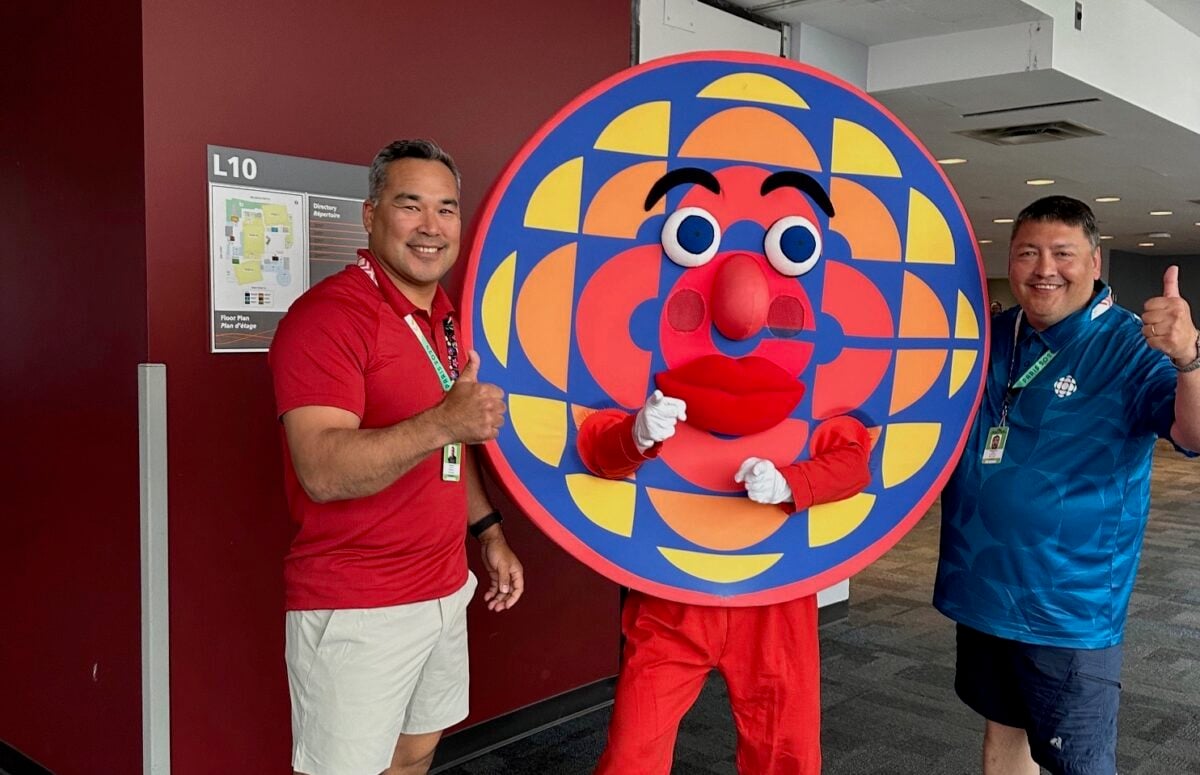


We already had a lot of Inuktitut words to describe hockey, but we had to start again to research basketball. I worked with my mother, my grandmother, an uncle and a friend of mine to come up with words in our language to describe different kinds of plays and terms — things like three pointer or travelling or layup. We made a long list and thought about ways to make these basketball words understandable in Inuktitut.
We chose words that are used in another context within our language, but when we use them to describe basketball, they fit and they’re relatable in the context of a basketball game. So, one example is a free throw. We would use akiqanngittumik itiqtitsinasuk, a word that roughly means “at no cost.” But when we say “at no cost” in this context, the listener understands that we mean it’s a free attempt at scoring.
I was a huge basketball fan when I was younger. I’m a hockey player, but I really loved basketball at a certain point when I was a teenager. So I at least had a good understanding of how the game was played. And I had played on a basketball team when I was younger, so I followed it for a bit. When this opportunity came up, I just picked it up again. I started watching a lot more basketball — men’s and women’s — to hear the commentating. What’s the role of the play-by-play? What’s the role of the colour commentator, which was my role?
I spent a lot of time researching the finer details of the game — why something happened, the history between different players, if they were teammates before they came together on the Canadian team. I had to gather so much history and detail and background information on the Canadian team, but also on everyone on the teams they were playing. This was really enjoyable. I’m a teacher by trade, so preparing to explain something is an extension of that. As a colour commentator, I wanted to further educate viewers about a play but also about a player or a team or a country.
At first, we were asked to cover the Canadian men’s and women’s round-robin and the playoffs. Okay. Good. And then as time went on, CBC said, “Guys, now you’re going to do the U.S. games, too.” And it was popular, so CBC said, “Now you guys are going to do the quarterfinals and semifinals. Wow! So, now we were suddenly doing Canadian men’s and women’s, U.S. men’s and women’s. And then whatever semifinal was happening. And then the medal games. So we were studying so many teams — France and Serbia and South Sudan and Brazil. It was a lot!
We were watching the games and doing commentary out of CBC’s Toronto studio. It wasn’t Paris, but it was still pretty cool to be in Toronto with so many other sports commentators. There was soccer, volleyball, three-on-three basketball, beach volleyball, cycling, breakdancing, all kinds of track and field events. And we were all obviously working some weird hours.
Once all the extra basketball games started getting added to our schedule, we had less time to prepare. We’d finish a game, take a quick nap and then spend all our in-between time prepping for the next game. We needed to know as much as we could so we were ready to talk about what was going on during each game and make it interesting for our audience.
It was really encouraging. People were sending us messages saying they were never a basketball fan before, but now they were catching all of our games because we made them interesting. They said they were becoming basketball fans. And it wasn’t just Inuktitut speakers who were tuning in. There were people who just knew who we were and wanted to support us, which was pretty cool. It was great to have comments from Elders who told us that they now understood the game because we explained it so clearly, but they also liked that we were talking about all the different players and the different countries. It felt good to hear how appreciative viewers were. They were engaged and really encouraged and supported us.
When we were in Toronto, we mentioned over and over again that we’d really like to be considered when the Winter Olympics come around. We’d like to do it again. It’s like a dream job — you’re having so much fun while also promoting and preserving and strengthening your language, which is an absolute honour. Doing this commentary shows that our language matters.